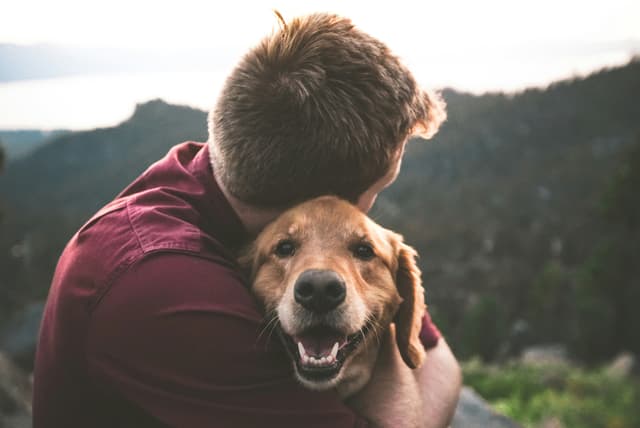Why Buying a Puppy from a Pet Store is a Bad Idea
By Mawoo Pets · 6 mins read
Last updated: January 10th, 2023
It may have become more difficult to buy pets from a store these days, but the traditional pet store is by no means gone from the world. Pet stores full of adorable puppies, kittens, parrots and many more kinds of animals are never too far away—but there are ethical considerations to be made when shopping there.
Are you thinking about buying a puppy from a pet store? Read on to learn why buying a dog from a pet store is a bad idea and what you should do instead.
Why is Buying a Puppy from a Pet Store a Bad Idea?
There’s a good reason why many cities, provinces and states have banned the sale of puppies and other pets in stores—it’s to protect the wellbeing of the animals. Though pet stores may have the best intentions for the creatures in their care, a lot of effort is being made now to use pet stores spaces for rescued pets. If you are considering buying a puppy from a pet store, here are a few things to keep in mind before making that purchase.
Pet Store Puppies Come from Puppy Mills

An estimated ninety percent of animals sold at pet stores come from puppy mills and backyard breeders. That means there is a very good chance any pet you find at a pet shop is the product of unethical breeding. When people create a business by breeding as many puppies as possible and selling them as quickly as possible, facilities get cramped and dirty. Medical protocols can be overlooked and the welfare of aging dogs in such places does not have a great reputation.
One major difference between responsible breeders and puppy mill owners is how they deal with potential customers. Many wonderful dog breeders do not sell their puppies to pet stores because they prefer to meet with potential owners in person, instead of leaving their much-loved dogs to be bought by strangers. In fact, many breeding clubs such as the American Kennel Club (AKC) advise their members not to sell puppies to retail stores at all.
Even legal breeding facilities such as many found in the United States and Canada would not be considered satisfactory by many good breeders and dog owners. Large breeding businesses are often allowed to house hundreds of dogs and puppies in small cages with extremely limited access to open spaces and exercise—in some cases for their entire lives. When the purpose of the business is profit, minimal care and attention is often given to the animals themselves. The same can often happen with kittens.
Pet Store Staff Lacks Breed Knowledge
There are many more reasons why buying a puppy from a pet store isn’t the best idea—for you or the puppy. In addition to ethical questions, pet shop purchases come with little to no information about a dog or cat's history.
Pet Stores Offer No Support After Purchase
When you buy a pet from a pet store, there’s no obligation for staff (not to mention breeders) to help you with that pet once it has gone home with you. Sometimes you’ll find a friendly member of staff who offers advice, but their advice can only be general at best since they did not breed or train the animals in the store.
At Mawoo, we are not only happy to chat with you any day of the week about any questions and concerns you might have, but we also keep you in touch with your puppy’s breeder for ongoing support.
Pet Store Puppies Aren’t Properly Socialized

Socialization is the process of helping a puppy become familiar and comfortable in everyday situations, and around other people and animals. It’s a careful and important way to build a puppy’s emotional wellbeing, and to avoid excessive anxiety when being rehomed.
Instead of healthy socialization, pet store puppies are placed into an unnatural environment, separated from the people they know, and kept in kennels to be stared at by strangers. It’s not a calm or healthy way for a baby animal to live—especially since the first months of a dog’s life are the most important in developing its social personality.
Potential Health Issues Due to Poor Conditions
When backyard breeders start to run out of space for their puppies and breeding pairs, dogs become crowded in small kennels that quickly become dirty. All ethical breeders will tell you that it takes constant work to keep a dog and its kennel clean, and when you cut corners with cleaning, parasitic infections happen easily.
Very young dogs who get sick with infections can develop diarrhea, putting them at a high risk of death. There is also potential risk of long term health problems related to early illnesses.
Potential for Poor Genetics Due to Irresponsible Breeding Practices
Selecting dogs to become breeding partners takes some careful thought and knowledge. The more inbreeding that happens in a dog’s family tree, the higher the potential for genetic defects. By using registered, certified dogs to breed puppies, breeders are able to track genetic history and avoid obvious mistakes.
Even if two dogs are not part of the same recent family tree, good breeders look for structural, behavioural, and health issues among dogs to try to keep puppies’ personalities and health as sound as possible. Puppy mill puppies are simply bred according to their breed.
Zero Access to Breeder, Parents, or the Facility Where the Puppy Was Bred and Raised
The best way to plan a training program for your new puppy, or to tackle health and personality complications, is with an open dialogue with the puppy’s breeder. That’s why it’s so important to have communication with a dog’s specific breeder, and access to information about its parents. Parents and their puppies have many traits in common that help new owners learn from the experience of older generations.
If you buy a puppy from a pet store, your only line of communication is with the store itself. If the store does have access to all the information you want concerning your puppy’s breed, nutrition, family traits, etc., it may not automatically share that info with you. More likely, they won’t have much information at all, and you won’t be able to talk with breeders about the puppy’s parents or genetic history.
During the first year of your new dog’s life, it’s invaluable to know when its parents reached certain doggy milestones—and when you can expect your puppy to start calming down!
Alternatives to Buying a Dog from a Pet Store
There are many ways to buy a dog ethically that are just as easy as picking one up from a pet store! Consider the following ways to find your new puppy without worrying about supporting unscrupulous commercial breeders.
Work with a Reputable Breeder
Local and international dog breeders can be identified by great reviews, happy customers, and a visit to the breeding facility itself. Mawoo’s network of ethical dog breeders is personally vetted by our organization so you can browse dogs by breed, location, size, etc., and schedule a call or visit to meet any puppies on our list.
Our Dog Breed Quiz takes just a minute to complete and will show you a list of dog breeds that best suit your lifestyle and personality. You’ll even be matched with specific puppies for sale who match those breeds!
Adopt from a Shelter or Rescue
Pet adoption is a wonderful way to save a life without worrying about any ethical problems. The difference between buying and adopting a dog is simple: You buy a dog from a breeder or store, while you adopt from an animal rescue, shelter, or in some cases right from the street. Depending on the rescue organization, adopting a dog usually comes with a fee that covers spay/neuter, vaccinations and medical treatments for sick rescued animals. Drop by your local animal shelter or Humane Society to meet dozens of pets in need of a loving home.
FAQs About Buying a Dog from a Petstore
Retail stores stock puppies for sale that do not come directly from breeders, but are sourced by puppy brokers. In many cases, pet store staff don’t know all the details of a puppy’s history, which can be problematic. The following FAQ covers this and several other common concerns about buying a dog from a pet store.
Can I Return a Puppy to the Pet Store?
It’s unusual for a pet store to accept returns on puppies and other types of pets. In most cases, you’ll only be able to return a pet if you realize it was sick when you bought it. If a pet dies or becomes seriously ill within a certain amount of time, usually a month, you may be able to return it for a refund.
Refunds on pets, or replacement pets, are more likely to happen if you signed a purchase agreement with the store. With professional, reputable dog breeders, you will always have a contract to fall back on if something goes wrong with your puppy.
What Do Pet Stores Do with Unsold Puppies?
Every pet store has its own specific policies, but there are a few similar ways they deal with unsold puppies. If a puppy doesn’t sell within a few weeks, the store will reduce the price in hopes that someone will buy them before they grow out of the cute, small puppy phase. Adult dogs and cats are much harder to sell than puppies and kittens, so pet stores don’t want to hang onto them for too long.
When a puppy doesn’t sell and is considered too old to attract a buyer, it might be sold back to its breeder or more likely just given away to a member of staff. In the first case, a puppy will probably be kept by its original owner and eventually used as another breeding dog.
Can I “rescue” a Puppy Mill Dog by Buying It?
On a completely personal level—that is, as far as the puppy itself is concerned—a good home is a good home. Your purchase of a puppy mill dog can change the life of that puppy for the better, but it won’t change the system of animal exploitation that put the puppy in that store to begin with. To make a big change, pet advocates suggest pet owners go straight to an ethical source for new furry members of the family.
Buying a Dog with Mawoo Pets
If you need help with financing to buy your new puppy, get in touch! A member of staff will walk you through the application process and help you find the money to make things work. Our purebred puppies come from breeders who support animal welfare at every stage of life.
Related articles
Any questions? Get in touch!
We are here to support you every step of the way. Our concierge service is here daily to answer your questions!
Chat or speak with our team Mon-Sat 9a-9p ET.






